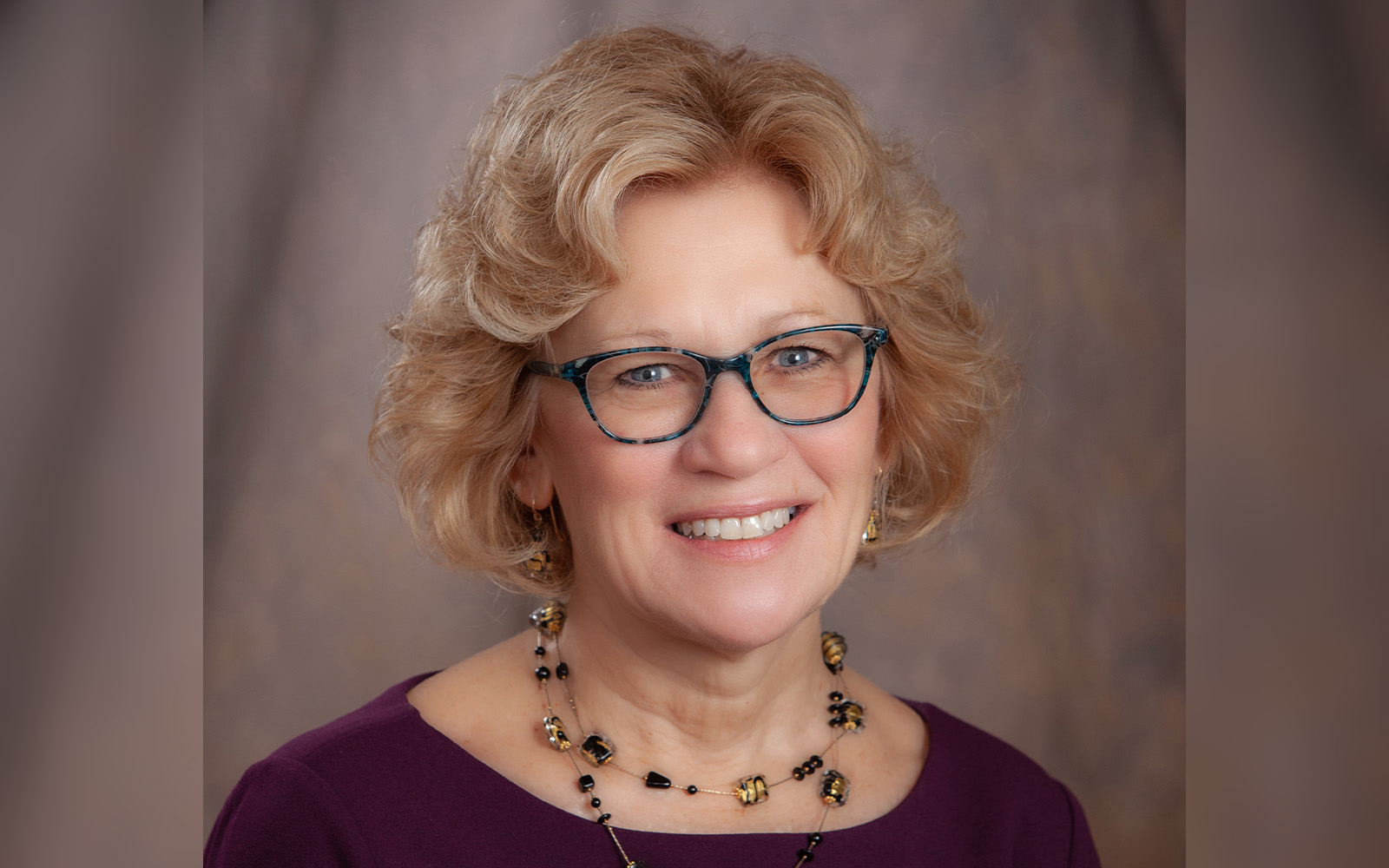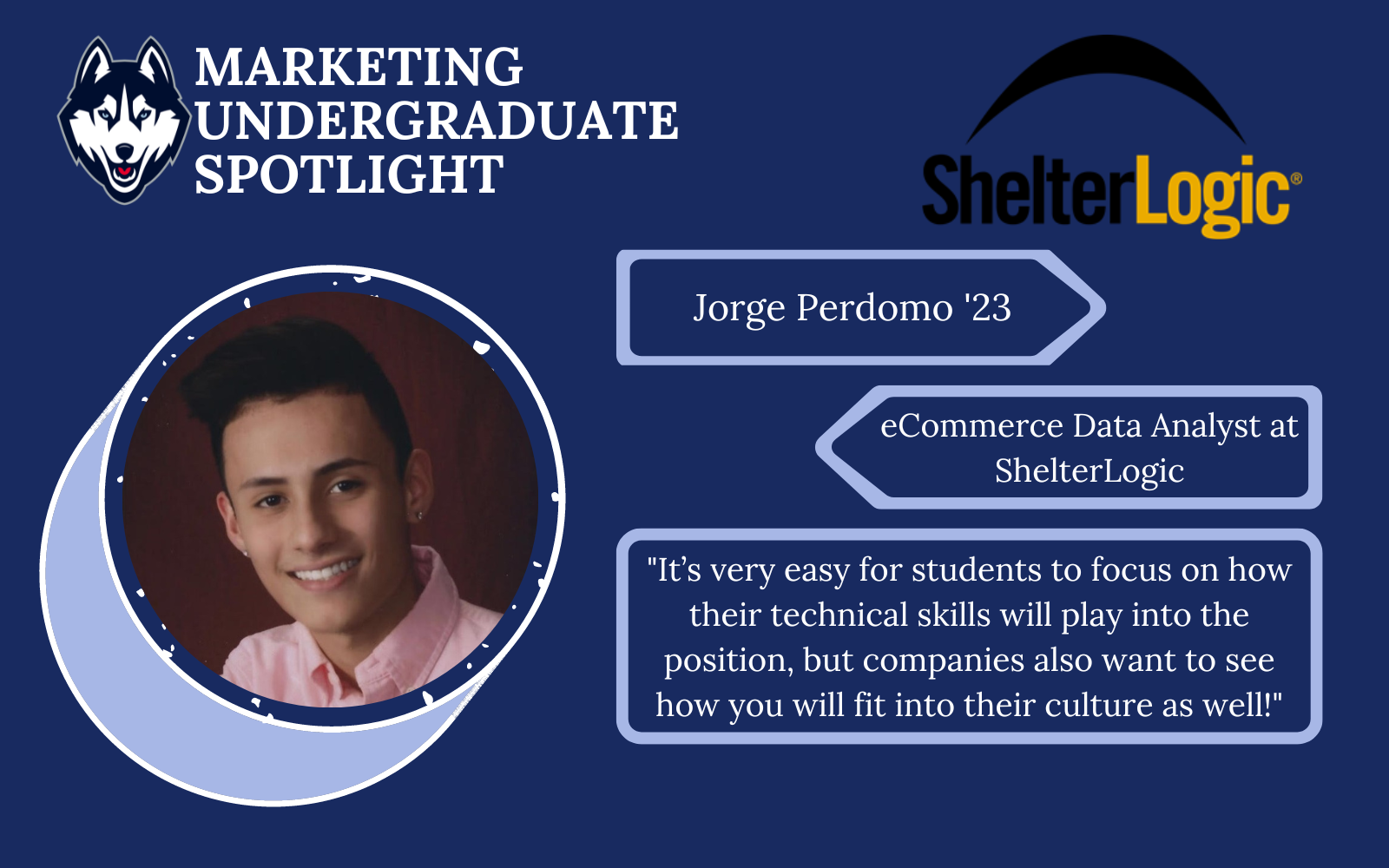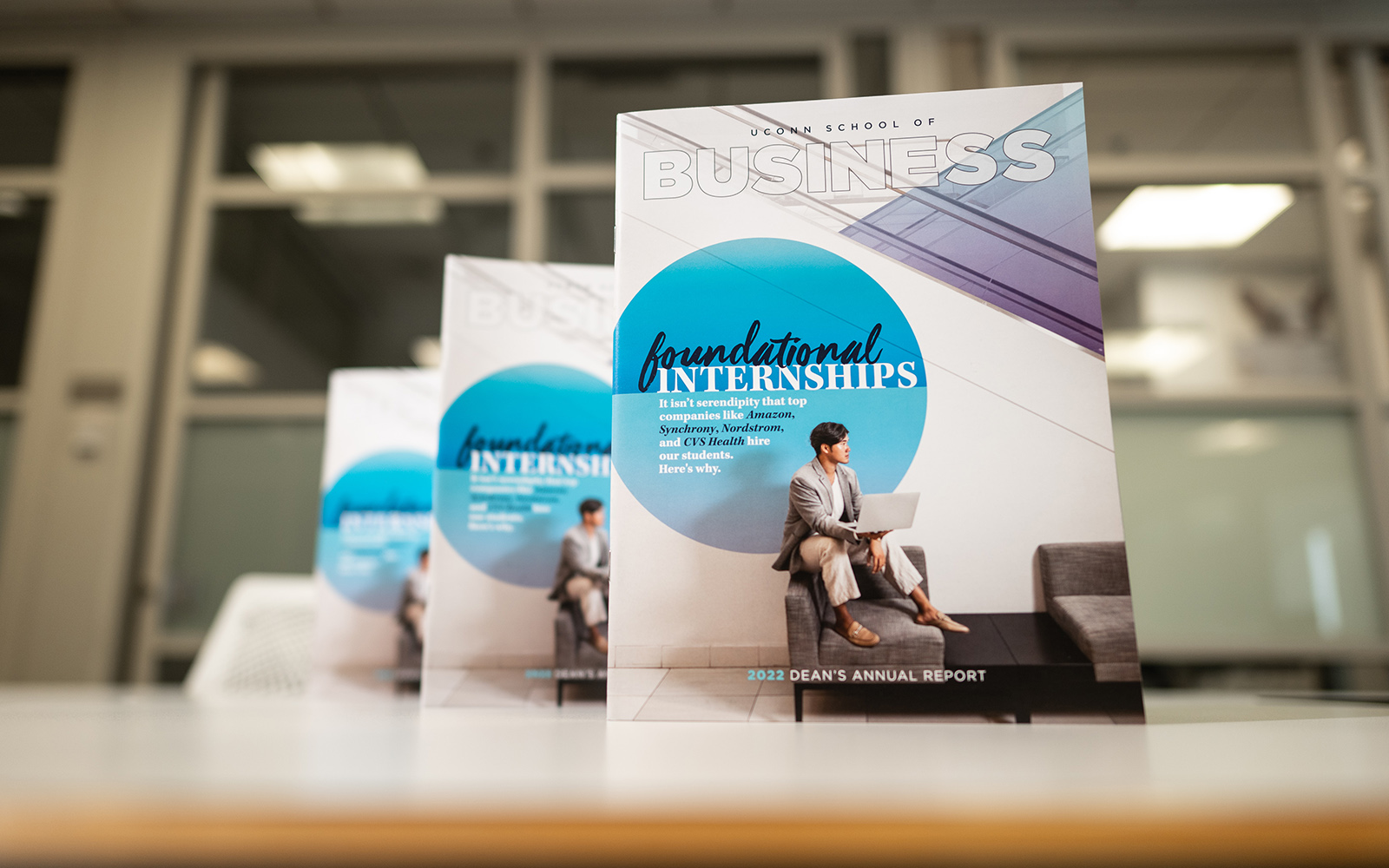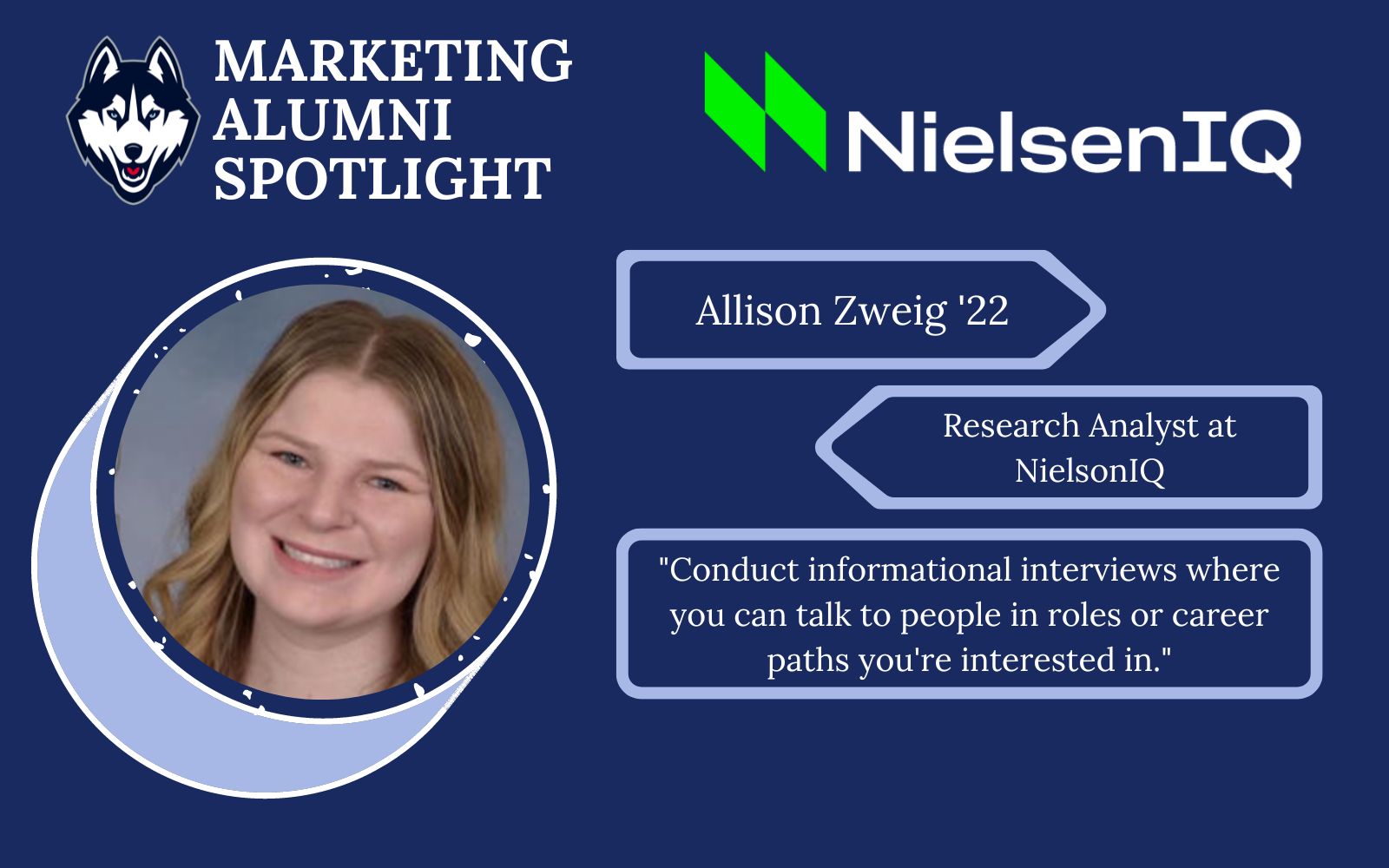School’s Second Annual Sustainability Summit on March 24 Open to Alumni, Friends of UConn
We often do not think deeply enough about the domain of education. It is certainly about reading, writing, and arithmetic taught to our youngest learners as tools to enable them to learn more and explore more and grow more. As they move through their lives, the intellectual challenges evolve and the depth of their study and understanding grow apace. It has been my privilege to work in university settings for most of my adult life, among colleagues pursuing the next big idea and challenging received wisdom, while incorporating their innovations into writing, textbooks, and teaching.
In the Business School at UConn, we are constantly rethinking and revising our curriculum to focus on what is important. An example of a long-term evolution is the Friedman Doctrine. In 1970, University of Chicago professor Milton Friedman published an article in the New York Times declaring that a business does not have any social responsibility to society beyond serving its shareholders. The notion was that profit maximization arose from the most efficient use of resources and as the profits were realized and distributed to the shareholders, the shareholders had the ability to use these returns as they wished to support socially important needs. This idea was embraced in business schools and became a foundational principle for finance. It also drove a bit of a wedge between the schools of business and scholars at their universities.
Triple Bottom Line Embraces Profits and More
Over the ensuing 50 years, many challenges to this doctrine emerged. Today there is the notion of a “triple bottom line” that suggests value maximization is not just about profit, but also includes people and the planet. Corporate social responsibility (CSR) and investing based on environmental, social, and governance (ESG) outcomes have emerged as a growing area of interest for our students and the companies who recruit them. Educators and employers know that the younger workforce of today cares about how their employer serves its community and the planet.
At UConn, our students are passionate about our planet and preserving it for their children and grandchildren. The Aspen Institute ranks UConn among the Top 10 universities addressing environmental issues, but our students want more. UConn President Radenka Maric recently responded by pledging carbon neutrality for the campus by 2030. The clock is ticking.
For our part, the School of Business is convening our second annual Global Business Leadership in Sustainability Summit on March 24 for students to learn more about this rapidly growing area and to meet alumni and corporate partners. Alumni and friends of UConn are welcome to attend.
Critical Thinking, Cultural Awareness Key to Business Education
The School of Business is often thought of as Milton Friedman’s apostles, where the profit motive rules supreme. Not true. Our colleagues in Arts and Sciences sometimes forget that half of undergraduate coursework in the business school is in the arts and sciences and many of our courses mandate both critical thinking and cultural awareness. Moreover, in the last several decades CSR, the environment, human rights, and other balance points for profit maximization have moved to the forefront of our curriculum. But they are balance points. The core notion that efficient allocation of resources to produce goods and services at low cost is one we embrace and we educate students in how to accomplish that.
For example, UConn has a Business and Human Rights Initiative, something that is unusual in higher education. The business school partners with the University’s Gladstein Family Human Rights Institute to develop and promote programs and activities that raise attention and awareness to global abuses of human rights. We will soon be launching a master’s degree and a set of certificates built around CSR. We expect many of our MBA students to make a subset of these experiences part of their education. In fact, our new MBA Now courses will offer a special series of elective courses in 2023-24 focused on sustainability and the supply chain. At the university level, in response to student interest, we have changed the common core that everyone must take to include an environmental course.
Humanitarian Benevolence Varies Greatly
In educating our students, one important objective is perspective. They must be able to evaluate “doctrines” thoughtfully and dispassionately. “Doctrines” by the nature of the word are belief systems that are extolled by groups, often religious or political. This notion is antithetical to the university. The Friedman Doctrine is appealing and simple. But it misses a great deal. It is built on an assumption of perfect markets and informed, benevolent citizens.
The perfect market assumption fails because of positive and negative externalities. Companies seeking to maximize profits make self-serving decisions when the costs of their polluting activity do not fall on them—a negative externality produces positive profit for the enterprise. The neighborhood bears the cost of bad water, etc. Informed benevolent citizens is also a failed assumption. In the USA today, we have familiar examples of people who have pledged the majority of their extreme wealth to nonprofits. Buffett, Gates (Bill and Melinda), Bloomberg, and Bezos follow in the path of Carnegie, Ford, Morgan, and Vanderbilt. But other uber-wealthy individuals have no apparent social conscience. So, the Friedman Doctrine is built on shaky ground that fails to incorporate externalities and overstates a shared humanitarian objective for those who benefit from (and influence) government policy.
The School of Business is committed to providing a curriculum that explores these important ideas, requires students to evaluate the nuances of ideas and opportunities, and gives them license to learn what they want to learn to enhance their future. We have launched a series of new programs that give students more license to choose their path. And we seek to engage them in open dialogue about not only efficient allocation of resources but also thoughtful investment in the future of our economy.

Back to the Dean’s Corner




